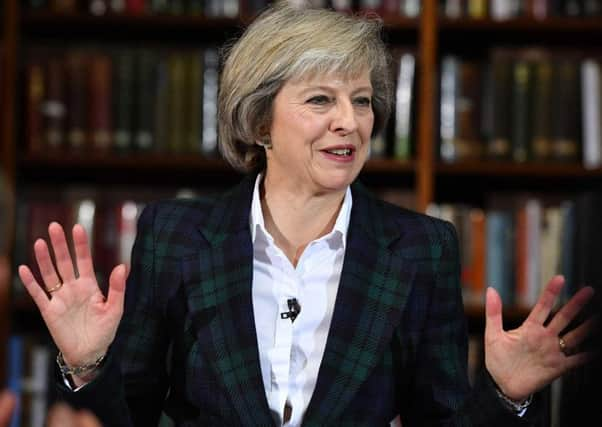Brexit: what happens now that Article 50 has been triggered?


Theresa May has announced in the House of Commons that she has officially notified the Council of Europe of Britain’s intention to depart.
Donald Tusk, President of the Commission, received the letter that was delivered at around 12.20 this afternoon.
Advertisement
Hide AdAdvertisement
Hide AdThe Prime Minister said optimistically that Britain will emerge stronger and more united as a result of the decision taken by voters last June.
Mrs May said that Britain will be more ‘global’ and that we would remain the best friend and ally of our neighbours in the EU.
Today might feel like the pinnacle of a life’s work for many Eurosceptic politicians, but in truth it is the start of a long and painfully difficult road.
Here are just some of the things that will come to pass now that Article 50 has been triggered.
Ticking clock
Sky News might have jumped the gun slightly with their transfer deadline day style countdown clock to when Britain is set to fully exit the EU (it’s 730 days in case you wondered).
But that doesn’t mean that the teams of politicians and diplomats on both sides aren’t on the clock as they start frenzied negotiations.
Article 50’s terms instructs member states of the European Union to notify the other 27 nations of their intention to leave, as Theresa May formally has done today.
As Theresa May noted since she rather arbitrarily decided that she would trigger Article 50 before the end of this month, that period of time between notification and departure is two years.
Advertisement
Hide AdAdvertisement
Hide AdIn theory, then, Britain will cease to be a part of the European Union no later than March 28th of 2019.
That doesn’t mean that the time period that Article 50 (which was drawn up when Brexit was a distant prospect) mandates is set in stone.
Even the most fervent of Brexiteers concede that leaving the EU will be far from a smooth process, indeed most concede it will be fairly arduous.
Both sides can agree to extend the deadline if negotiations go slower than expected, although that has domestic political ramifications for Theresa May, and would need the agreement of all 27 remaining member states.
The Bill
The letter to the EU triggering Article 50, and the response of Donald Tusk, has been, so far, one of relative conciliation and a desire to get a deal done in good time.
But a quickie divorce might not be as easy to achieve if Theresa May digs her heels in on the terms of a potential payment to the EU.
As Nigel Farage dons his best Union Jack socks and toasts today with a ‘pint of something’ (his words), the practicalities of the departure mean for many of his fellow politicians, the hard work is just starting.
Figures as high as £60bn have been quoted in some circles as the potential payment to the remaining 27 states.
Advertisement
Hide AdAdvertisement
Hide AdBrexiteers such as Farage say we should ignore a potential invoice that high and thus leave without a trade deal in place.
That means that the UK and the EU would have to start doing business on the basic terms of the World Trade Organisation, something that economists have warned against.
European diplomats, and many members of Theresa May’s party, have urged the Prime Minister to acquiesce to the strident demands for a bill to be settled, and want the matter to be dealt with quickly.
Immigration
Immigration was the defining issue of the Brexit debate last summer and looks likely to remain a key battleground moving forward.
Those who back Brexit speak in lofty terms about ‘taking back control’ and ‘controlling our borders’ but that rather glosses over the difficult issues around immigration that still persist nine months on from the vote in June.
Given that David Cameron promised to lower net migration to the ‘tens of thousands’, a pledge he could never keep, a large cut in immigration seems almost inevitable.
The UK Government has so far resisted numerous attempts to guarantee the rights of current EU citizens in the UK to remain in the country.
There is considerable and understandable angst that Mrs May intends to use these resident EU citizens as a bargaining chip in the upcoming negotiations with European leaders.
Advertisement
Hide AdAdvertisement
Hide AdA number of companies have already raised concerns that they will be unable to function properly without being able to hire EU migrants in the same numbers as they had before.
The EU commits members to the principle of the free movement of people within the group, and it is because of that many voters chose to back Brexit.
There is also the thorny issue of the millions of Brits who currently live abroad in places like Spain – that battle is one that will happen quickly, and many hope, decisively.
